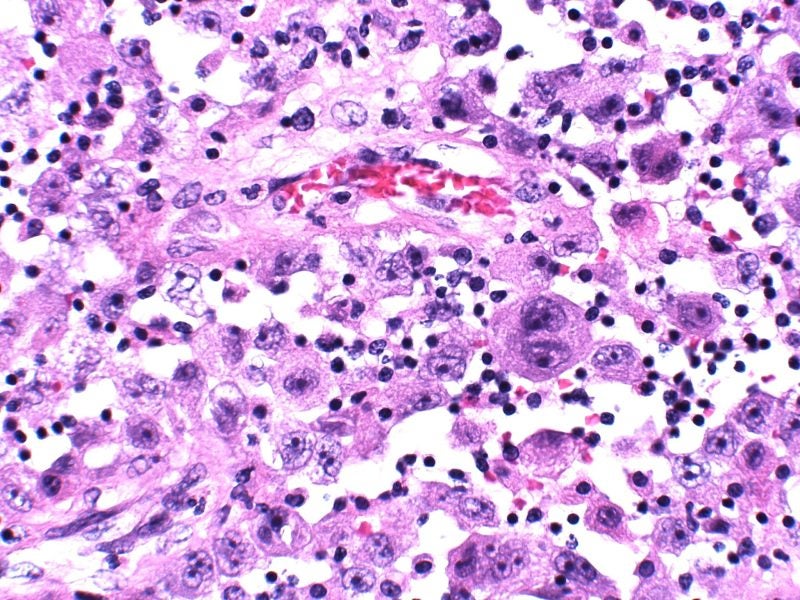
Mirati Therapeutics has reported initial data from the Phase II KRYSTAL-7 clinical trial and KRYSTAL-1 Phase Ib cohort analysing a 400mg twice daily dose of adagrasib plus pembrolizumab to treat first-line non-small cell lung cancer (NSCLC) patients.
In both trials, the combination treatment was analysed as a first-line therapy in patients harbouring a KRASG12C mutation across all PD-L1 subgroups.

Discover B2B Marketing That Performs
Combine business intelligence and editorial excellence to reach engaged professionals across 36 leading media platforms.
At a median follow-up of 3.5 months, 75 participants were enrolled and could be analysed for safety.
According to the latest findings, a concurrent combination regimen of adagrasib plus pembrolizumab showed tolerability and feasibility.
Grade 1-2, Grade 3, and Grade 4 treatment-related adverse events were reported in the trial while no Grade 5 events were seen.
The combination therapy offered favourable initial clinical activity across all PD-L1 subgroups, with a 49% objective response rate (ORR) in evaluable subjects who received a minimum of one on-study scan.

US Tariffs are shifting - will you react or anticipate?
Don’t let policy changes catch you off guard. Stay proactive with real-time data and expert analysis.
By GlobalDataAn ORR and disease control rate (DCR) of 57% and 100%, respectively, were seen in seven evaluable subjects in the KRYSTAL-1 Phase Ib cohort.
Safety in the KRYSTAL-1 Phase 1b cohort was also in line with those seen in KRSTYAL-7, with a manageable safety profile.
An investigational oral small-molecule KRASG12C inhibitor, adagrasib showed to have a durable half-life and widespread tissue distribution in studies.
Pembrolizumab is a PD-1/L1 checkpoint inhibitor.
Mirati Therapeutics research and development head, president and founder Chuck Baum said: “We look forward to progressing our clinical development in the first-line setting, with a goal of providing better options for patients with NSCLC harbouring a KRASG12C mutation.
“This data further underscores the potential of adagrasib as a well-tolerated treatment option for patients. Based on these data, we look forward to initiating a Phase III trial.”
In January this year, the company reported positive results from the Phase II KRYSTAL-1 trial of a 600mg twice daily dose of adagrasib in pre-treated pancreatic ductal adenocarcinoma and other gastrointestinal tumour patients with a KRAS-G12C mutation.





